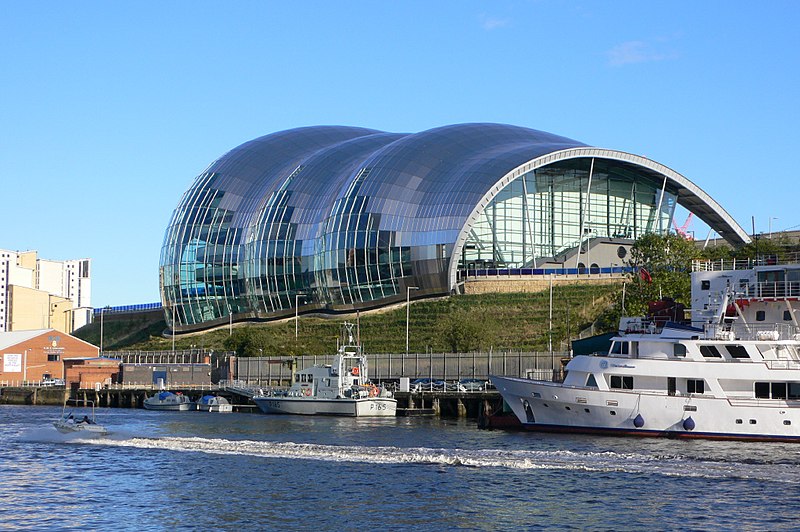
The UK government is set to inject £60 million into creative industries, marking the initial phase of its Sector Plan designed to foster growth and innovation in this vital sector of the economy.
This funding aims to support hundreds of creative businesses and projects nationwide, highlighting the sector’s critical role in driving economic prosperity.
Major economic growth summit in Gateshead
Culture Secretary Lisa Nandy hosted a landmark summit at The Glasshouse International Centre for Music in Gateshead, bringing together over 250 creative businesses and cultural leaders. The event outlined how the government will collaborate with the creative sector to unlock its full potential.
The £60 million support package includes £40 million dedicated to start-up video game studios, grassroots music venues, and initiatives to boost British music and film exports. These investments are expected to drive innovation, support communities, and create new job opportunities across the UK.
Key areas of focus and regional priorities
As part of the government’s modern Industrial Strategy, the Creative Industries Sector Plan will identify the sector’s growth potential, highlight new market opportunities, and address barriers that impede development. Priority regions for this initiative include:
North East
Greater Manchester
Liverpool City Region
West Yorkshire
West Midlands
Greater London
West of England
South Wales
Glasgow
Edinburgh-Dundee corridor
Belfast
Additional funding will also be allocated to six Mayoral Combined Authorities, ensuring these regions can maximize their strengths and attract sustained investment.
Flexible apprenticeships and skills development
Recognizing the unique needs of the creative industries, the government announced plans to introduce shorter, more flexible apprenticeships starting in August 2025. This change is part of broader efforts to reform the Growth and Skills Levy, enabling businesses to access a more tailored workforce development model.
Enhanced support from British business bank
The British Business Bank, which has already facilitated £17.4 billion in finance to over 64,000 smaller businesses, will expand its support for creative industries. This commitment underscores the government’s intent to improve access to finance, a critical factor for fostering growth and innovation within the sector.
Collaboration and future plans
The government is working closely with industry leaders, including the Creative Industries Taskforce chaired by Baroness Shriti Vadera and Sir Peter Bazalgette, to shape the Sector Plan. Further announcements and policy updates are expected in the coming months.
A vision for growth and opportunity
Culture Secretary Lisa Nandy emphasized the importance of the creative industries, stating:
"From film and fashion to music and advertising, our creative industries are truly world-class and play a critical role in helping us deliver on this Government’s mission to drive economic growth in all parts of the UK.
"Our £60 million funding boost will support creative and cultural organisations across the UK to turbocharge growth by transforming local venues, creating jobs, supporting businesses, and spreading opportunity across the country."
This initiative is a testament to the government’s commitment to creating an attractive business environment, removing barriers to growth, and ensuring the creative industries remain a cornerstone of the UK’s economic future.
Chancellor of the Exchequer Rachel Reeves said: “Our number one mission is to grow the economy and our creative industries are a British success story with a big part to play.
Building on our plans to boost our AI sector, this is another step as we go further and faster to deliver growth so we can put more money in people’s pockets.
Today’s summit comes as the Culture Secretary and Foreign Secretary David Lammy also confirmed the membership of a new Soft Power Council. The council will act as an advisory board to the UK Government and will bring together soft power and foreign policy experts to champion the UK abroad, and drive investment and growth at home. Members include former rower and chair of UK Sport Katherine Grainger, former athlete and television presenter Baroness Grey-Thompson and V&A director Tristram Hunt”.
Foreign Secretary David Lammy said: “Soft power is fundamental to the UK’s impact and reputation around the world. I am often struck by the enormous love and respect which our music, sport and educational institutions generate on every continent. But we have not taken a sufficiently strategic approach to these huge assets as a country. Harnessing soft power effectively can help to build relationships, deepen trust, enhance our security and drive economic growth.
That is why I have created the Soft Power Council to channel British expertise as we look to re-imagine Britain’s role on the world stage, reinvigorate alliances and forge new partnerships”. Photo by Jimfbleak at the English-language Wikipedia.




































